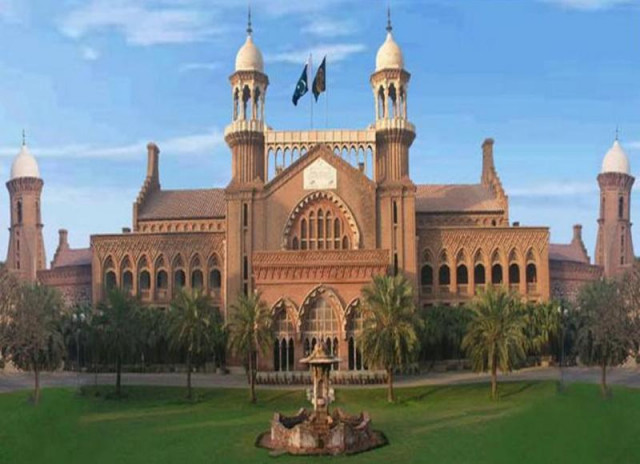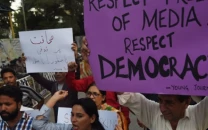LHC starts shortlisting candidates for 19 judges’ posts
High court has a total strength of 60, but only 41 are working

Lahore High Court. PHOTO: EXPRESS
Currently, there are 41 judges working at the LHC whereas the total strength is 60. Last elevation at the LHC took place in 2018.
Sources in the LHC revealed to The Express Tribune that new appointments would be made in two batches as the names of the nominees of the first batch have been referred to the state agencies to obtain their reports.
It is expected that LHC Chief Justice Qasim Khan would soon forward the names of nominees of the first batch to the Judicial Commission of Pakistan (JCP), which may hold a meeting in the start of next month. However, the process may get delayed due to the ongoing coronavirus situation, wherein the superior courts are not actively working.
The process of judges’ appointment is under severe criticism by different segments of the society, especially the superior bars, for the last one decade.
Meanwhile, a list of a few unconfirmed proposed names for the post of LHC judges is also being circulated in the legal fraternity for the last couple of days. A section of the lawyers believes that the motive behind leaking the judges’ names is to scandalise them before initiating the process of appointment. Another purpose is said to be an effort to defame the Supreme Court judges.
Interestingly, two of them are underage and they are not qualified to become LHC judge.
Senior lawyers, however, believe that the integrity and competency of a few of the proposed nominees like Raheel Kamran Sheikh is beyond doubt and the judiciary needs such elevation in the bench.
However, another section is questioning the role of top judges in proposing names for LHC judges as mentioned in the leaked list.
Pakistan Bar Council Vice Chairman Abid Saqi says that they have reservations over the proposed list which is being circulated in legal community.
He believes that the JCP should not become judges’ consortium.
Saqi demanded that the superior judiciary consider lawyers belonging to the minority community for the vacant posts. Likewise, proper representation of women lawyers should be given in the bench, he adds. No women judge has elevated so far in the apex court in the last 70 years.
Effective role of committee on judges’ appointment
The PBC vice chairman urged the parliamentary committee to make its role more effective in the judges’ appointment process. He criticised SC’s Munir Bhatti case judgment which made the role of the committee more ineffective.
Saqi believes that “politically opinionative” lawyers should be considered for the appointment of superior courts’ judges. He contended that there is no neutral judge.
He urged the parliamentary committee to prepare a questionnaire to gauge the “intellectual commitment” of the nominee with the Constitution, on which he will take oath as a new judge, adding that the same practice is happening all over the world during the process of the judges’ appointment.
He says “democratically sensitive” judges should be appointed in the superior courts.
Senior lawyers also urged the committee to ask nominees during interviews that how much they are concerned about democratic institutions.
In November last year, the committee amended its rules wherein it is stated that interviews of nominees would be conducted before their approval.
Active lawyer Barrister Asad Rahim Khan said, "We must remember that our judiciary self regulates and appoints its judges owing to a history of executive abuse, when judges were whimsically removed by military rulers, and just as whimsically appointed by civilian premiers purely on the basis of their political affiliation.
"There is no harm in our parliamentarians playing a more proactive role in scrutinising judicial appointments, as long as it is in light of our current constitutional arrangement. Judicial candidates being interviewed by parliamentary committee members that may lack the requisite knowledge of the law, judicial procedure, or recent precedent would not be a step in the right direction."


















COMMENTS
Comments are moderated and generally will be posted if they are on-topic and not abusive.
For more information, please see our Comments FAQ